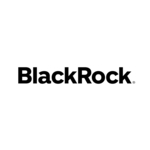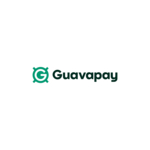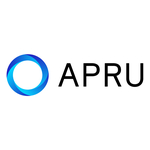Are we AI ready?
Does Australia exist?

As we continue to layer AI technology into our day-to-day lives, the risks continue to multiply
That question sounds absurd, doesn’t it?
Apparently though, it is debatable, depending on who you ask and how.
All is well if you were to type the question in a regular Google search. But, as The Guardian reported last week, if you were to pose the question via Bing, it would respond differently.
The Microsoft-powered search engine responded “No” to some users who asked the question last week, due to a number of sources referencing a long-running joke/conspiracy theory that Australia is in fact a hoax. (This has seemingly now been fixed, thankfully.)
Garbage in, garbage out, as the saying goes. These tools are only as accurate as the information that they learn from.
And this is not an isolated incident, unfortunately. Recently, it was reported by The Washington Post that Amazon’s Alexa claimed that the 2020 US election was stolen — seemingly due to unvetted sources that the popular voice assistant was leveraging.
These examples illustrate the danger of bad data, and how it can be amplified and weaponised in an increasingly digital world full of disinformation and misinformation. And bad data, just like an oil spill in the real world, is hard to clean up.
It makes me wonder, albeit uncomfortably, what else is out there? Whose responsibility is it to ensure that sources are reliable and unbiased, and is it even possible to hold them accountable? It’s one thing if consumers are receiving false information directly from a lesser-known website, but it’s quite another, and more damaging, if they are hearing the same information directly from an AI-powered system built by a trusted brand (even if it is simply relaying data).
As we continue to layer these technologies in our day-to-day lives, from healthcare to financial services, the risks continue to multiply. In a world where bits and bytes are dominating virtually every aspect of our professional and personal lives, perhaps it is no wonder that more and more companies are developing a variety of specialised training and reskilling programs to help equip more people with necessary skillsets to adapt to the data-driven world.
SAS, for example, has launched foundational data literacy virtual classes to help people understand what data is and why it matters as it looks to build out its data literacy toolbox. IBM, through its new IBM AI Academy, is aiming to help business leaders better understand how they could get started in deploying AI in their environments. Amazon is also launching “AI Ready”, a new programme for non-Amazon employees which aims to teach two million workers basic to advanced AI skills by 2025.
Such efforts reflect the expected trajectory of AI in our workplace: everyone will be impacted. Reskilling and upskilling are a must as companies look for AI-literate employees to fill new roles and to prepare young students for a new future.
Interestingly though, according to a recent Pew Research Center survey, Americans in general appear to be quite optimistic about AI adoption. The data regarding the future of work was, in particular, quite a surprise: “62% of Americans believe AI will have a major impact on workers generally. However, far fewer think it will impact them personally in a major way (28%).”
This begs the question, what is the role of financial institutions as employers and as providers of services and trusted entities that are essential for a well-functioning society? As the tech industry and financial services industry become increasingly intertwined, our risk landscape is rapidly evolving as well. How well-equipped are the leadership teams and the boards at these firms to assess the full range of risks and opportunities brought about by the changing ecosystem and steer the industry in a responsible manner?
If the recent Evident AI Index on talent support and leadership training is of any indication, we have some serious catching up to do.
And time, unfortunately, is not on our side.
 About the author
About the author
Theodora Lau is the founder of Unconventional Ventures, a public speaker, and an advisor. She is the co-author of The Metaverse Economy (2023) and Beyond Good (2021), and host of One Vision, a podcast on fintech and innovation. She was named one of American Banker’s Most Influential Women in FinTech in 2023. She is also a regular contributor and commentator for top industry events and publications, including BBC News and Finovate.










































